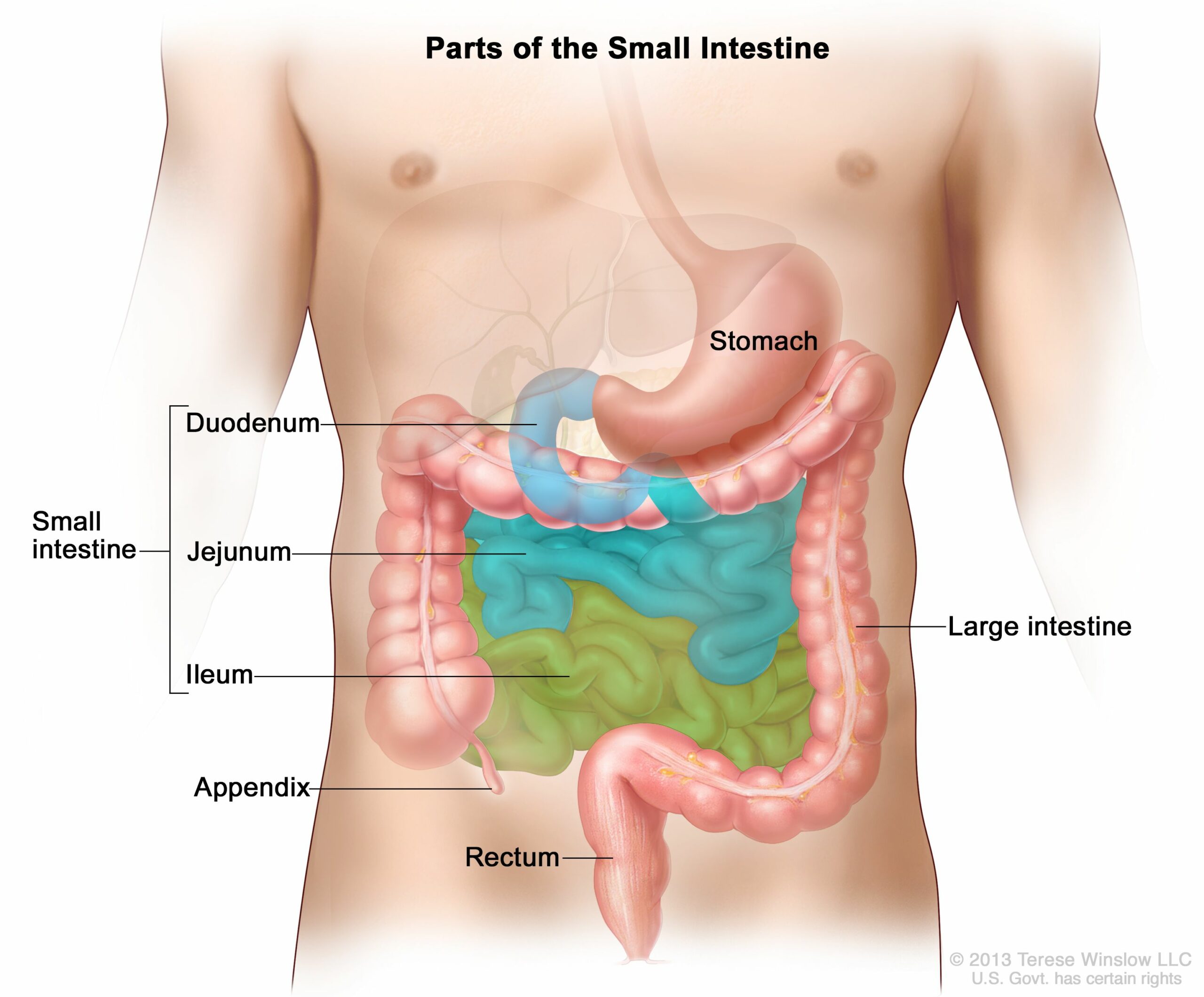Short Bowel Syndrome: Symptoms, Causes, Treatment
What are the symptoms of short bowel syndrome?
Short bowel syndrome (SBS) is a condition characterized by a shortened small intestine, which can lead to malabsorption of nutrients and fluids. The symptoms of short bowel syndrome can vary depending on the extent of the intestinal loss and the remaining length of the small intestine. Some common symptoms of short bowel syndrome include:
- Diarrhea: Diarrhea is a common symptom of short bowel syndrome due to the reduced surface area available for nutrient absorption in the shortened small intestine.
- Malabsorption: Malabsorption of nutrients, including fats, carbohydrates, proteins, vitamins, and minerals, can lead to nutritional deficiencies and weight loss.
- Steatorrhea: Steatorrhea is the presence of excess fat in the stool, which can occur due to malabsorption of fats in the small intestine.
- Dehydration: Diarrhea and malabsorption can lead to dehydration, which can cause symptoms such as thirst, dry mouth, and decreased urine output.
- Weight loss: Malabsorption of nutrients can lead to weight loss and malnutrition over time.
- Fatigue: Malnutrition and nutrient deficiencies can cause fatigue and weakness.
- Abdominal cramping and bloating: Some people with short bowel syndrome may experience abdominal cramping, bloating, and discomfort.
- Electrolyte imbalances: Malabsorption of fluids and electrolytes can lead to imbalances in electrolytes, which can cause symptoms such as muscle cramps, weakness, and irregular heartbeats.
- Increased risk of infections: Short bowel syndrome can increase the risk of bacterial overgrowth in the remaining intestine, which can lead to infections and other complications.
- Bone disorders: Malabsorption of calcium and vitamin D can lead to bone disorders such as osteoporosis.
It’s important to note that the symptoms of short bowel syndrome can vary widely from person to person and may change over time. If you or someone you know is experiencing symptoms of short bowel syndrome, it’s important to seek medical attention for a proper diagnosis and treatment.
What are the causes of short bowel syndrome?
Short bowel syndrome (SBS) is most commonly caused by surgical removal of a large portion of the small intestine, which can occur due to various medical conditions or complications. The primary causes of short bowel syndrome include:
- Surgical resection: The most common cause of short bowel syndrome is surgical removal of a large portion of the small intestine. This can occur due to conditions such as Crohn’s disease, ischemic bowel disease, trauma, or complications from surgery for other conditions.
- Congenital defects: Some infants are born with congenital defects that affect the development or function of the small intestine, leading to short bowel syndrome. Examples include gastroschisis, omphalocele, and intestinal atresia.
- Necrotizing enterocolitis (NEC): NEC is a condition that primarily affects premature infants and can lead to damage or death of intestinal tissue. In severe cases, surgical resection of the damaged intestine may be necessary, resulting in short bowel syndrome.
- Mesenteric ischemia: Mesenteric ischemia is a condition characterized by reduced blood flow to the intestines, which can lead to tissue damage and the need for surgical resection of the affected intestine.
- Radiation enteritis: Radiation therapy for cancer in the abdomen or pelvis can damage the intestines, leading to short bowel syndrome.
- Functional bowel disorders: Some conditions that affect the function of the small intestine, such as chronic intestinal pseudo-obstruction, can lead to short bowel syndrome.
- Other causes: Other less common causes of short bowel syndrome include volvulus (twisting of the intestine), vascular disorders, and certain infections or inflammatory conditions affecting the intestines.
The extent of intestinal resection and the remaining length of the small intestine are important factors in determining the severity of short bowel syndrome and the resulting symptoms. Treatment for short bowel syndrome focuses on managing symptoms, improving nutrient absorption, and preventing complications.
What is the treatment for short bowel syndrome?
The treatment for short bowel syndrome (SBS) aims to manage symptoms, improve nutrient absorption, and prevent complications. Treatment strategies may vary depending on the severity of the condition and the remaining length of the small intestine. Some common treatments for short bowel syndrome include:
- Dietary changes: A special diet high in calories, proteins, and certain nutrients may be recommended to help compensate for malabsorption. Small, frequent meals and the avoidance of foods that can worsen diarrhea (such as high-fat foods) may also be advised.
- Nutritional supplements: Oral or parenteral (intravenous) nutritional supplements may be used to provide additional nutrients and fluids. In some cases, tube feeding or total parenteral nutrition (TPN) may be necessary if oral intake is insufficient.
- Fluid and electrolyte replacement: Oral rehydration solutions or intravenous fluids may be used to replace fluids and electrolytes lost through diarrhea.
- Medications: Medications may be prescribed to manage symptoms such as diarrhea, abdominal cramping, and bloating. Probiotics may also be used to help restore a healthy balance of gut bacteria.
- Surgical interventions: In some cases, surgical interventions may be necessary to lengthen the remaining small intestine or improve intestinal function. Procedures such as intestinal lengthening or bowel transplantation may be considered in severe cases.
- Monitoring and management of complications: Patients with short bowel syndrome require regular monitoring for complications such as bacterial overgrowth, nutrient deficiencies, and liver disease. Management of these complications may include the use of antibiotics, vitamin and mineral supplements, and liver support therapies.
- Lifestyle modifications: Adopting certain lifestyle modifications, such as maintaining a healthy weight, staying hydrated, and avoiding smoking and excessive alcohol intake, can help manage symptoms and improve overall health.
It’s important for individuals with short bowel syndrome to work closely with a healthcare team, including gastroenterologists, dietitians, and other specialists, to develop a comprehensive treatment plan tailored to their specific needs. Regular follow-up visits and monitoring are essential to ensure that the treatment plan remains effective and to address any new or worsening symptoms.




